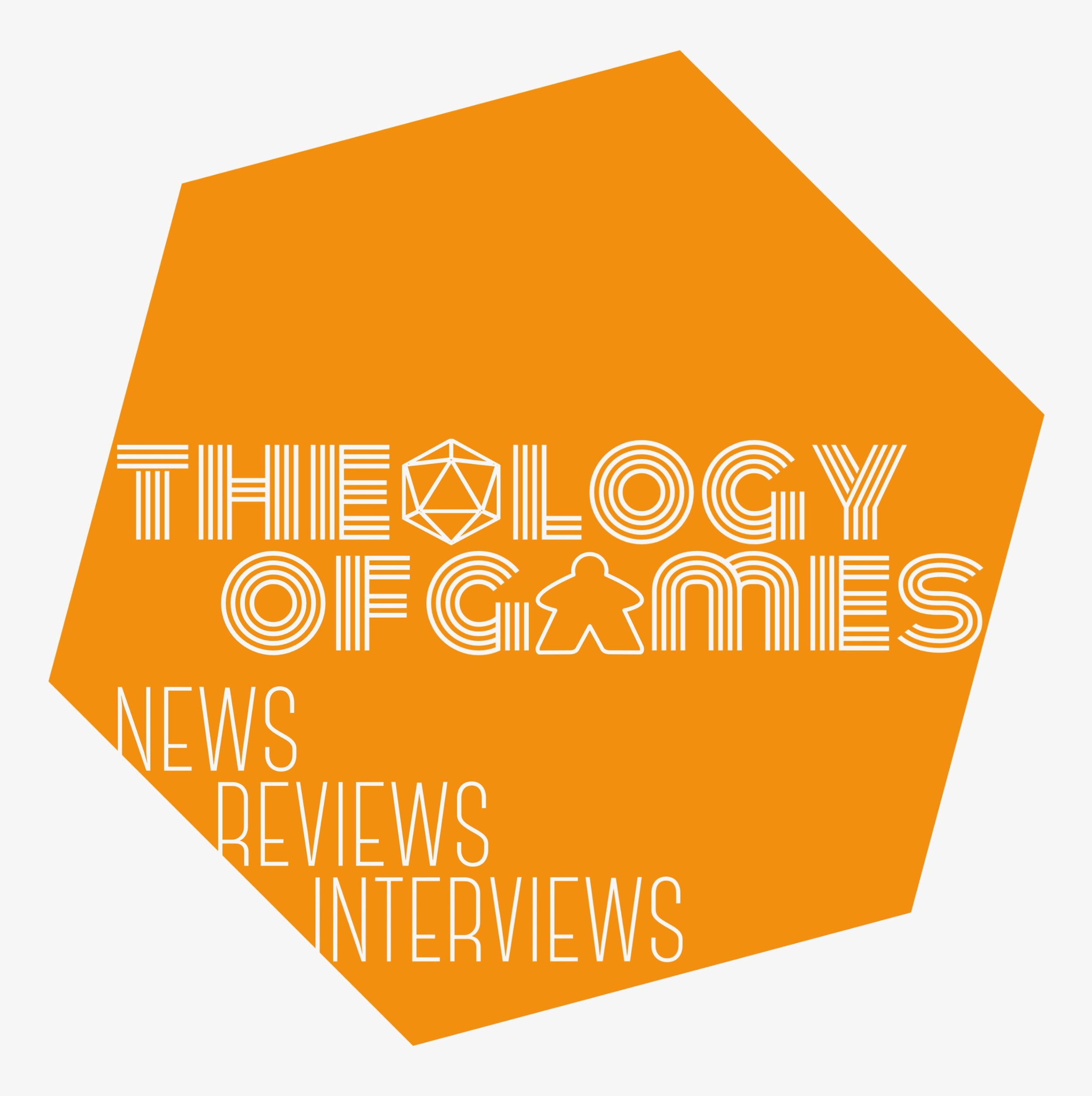Padre's Got a Brand New Bag--A Double-Take Review of Orleans
/Today's review is Orleans, from Tasty Minstrel Games. Is it all about beads, beignets, and Bourbon Street? Not even close. Try medieval France. Orleans is a bag-building game that plays with 2-4 in about 90 minutes. What's a bag-building game? Let's find out!
The Goal
The goal is to have the most VPs at the end of the 18 rounds. Victory points are gained by having coins (1 VP each), Goods (ranging from 1-5 VPs each), and Trading Stations and Citizen tiles, which are worth a point value determined by your progress on the Development Track. We'll explain all of these things as we progress.
The Components
- Boards! So many boards! There's a main game board, a sideboard, and a board for each player.
- Character Tokens! Okay, the rule book says these are character tiles. But they're round. So we call them tokens. There are: Farmers, Monks, Craftsmen, Scholars, Knights, Boatmen, (others). We're not going into what all of these do just yet.
- Cubes and Meeples! Each player has a Meeple that acts as their Merchant and a handful of cubes that move along different tracks, activating and tracking different abilities and stats throughout the game.
- Goods tiles! These are square tiles that have one of five goods printed on them. They range in value from 1VP-5VP.
- Bags! One in each player color.
- Place tiles! These actually expand your city and allow you extra action choices that other players don't have.
The Setup
First you mix up all of the Goods tiles facedown, and then place a number of them face up on the map side of the board in the Goods squares. Then you have to re-sort them and place them in individual stacks. You'll also sort out all of the character Tokens and place them in their appropriate spots, alongside the track they correspond with on the board. Each player gets a player board, a starting set of 4 Character tokens, and places their markers and meeple on the board. Each player also starts with 5 coins. Place tiles and the sideboard are also placed on the table accessible to all players.
The Gameplay
There are 7 Phases, but most of them are very short.
Phase 1: Hourglass--There are 18 Hourglass tiles, each with an event that can help or harm you. You'll flip over a new one at the start of each round, and then you have that round to prepare for it. This also acts as a game timer.
Phase 2: Census--Whichever player has the most Farmers gets 1 coin. Whichever player has the fewest has to pay 1 coin. If there's a tie, no one gets or pays the coin.
Phase 3: Followers--You'll draw Character tokens from your bag and place them on your Market spaces--the number you draw depends on where you are on a Knight track.
Phase 4: Planning--Then you place those tokens on your player board. Certain actions cost specific tokens, so you can plan exactly what you want to do. Of course, you may not draw from the bag the token you need. But you can leave tokens on your player board (either on Places on your board, or on the Market) round over round in order to increase the chances of you drawing the token you need in future rounds.
Phase 5: Actions--Now players take turns activating Places that have all the requisite Characters, and taking that action. (Though you don't have to, even if it's full. And sometimes there are good reasons to leave them and wait to activate the next turn.) There are lots of actions you can take, including getting new Character tokens, special Places that only you can use, moving your Merchant to get Goods tiles, or building Trading Stations for end-game points. You can also move characters to the Beneficial Deeds board. Once tokens go to this board, they stay there for the rest of the game, so it's the way you can cull characters from your bag that you don't really need anymore--and it's a way to score more points.
Phase 6: Event--Resolve the Event.
Phase 7: Start Player--Pass the Start Player.
The game ends after 18 turns, where you count up all the various VPs.
The Verdict
Firestone--So, in case you didn't figure it out through the description, this is a pseudo-deckbuilder. The difference is that you're drafting people so you can pull them from your bag and use them later to take actions, but you're also getting those people to do an action this turn. When you get a Craftsman, for instance, you get a Technology token, which you place on your board and replaces a required Character for the rest of the game. Both the Craftsman and the Tech token are valuable, so there's much more interaction than in a standard deckbuilder.
The other difference, of course, is that in a deckbuilder you're guaranteed to see every card. In Orleans, you're not guaranteed to see every Character. Yes, there are ways to ensure you do, by leaving Characters on the board for a turn, but there's definitely more luck in this than in other, similar games. If I draw what I need, and you don't and have to work for what you need, I have an advantage. That might bother people.
Jeremiah--There are no bounds to what gamers are "building" these days! Decks! Dice! Bags! What's next!? Seriously though, Orleans does feel like a deck-builder but the player interaction, and depth of the game, takes it to new places. Luck plays into it, for sure, but that only reinforces the need for a sound strategy.
Firestone--Timing is a big factor in Orleans. When you have the Start Player token is important. The order in which you take actions is important. There's a bit of a game of chicken, because you sometimes want to place Characters in, say, the Beneficial Deeds board. But since it's a communal board you want to make sure your placement doesn't help other people. So you're constantly seeing what other people are doing, what they're capable of, and trying to guess at what they'll do and when they'll do it. I like that.
Jeremiah--Oh those communal boards are the worst! (And by worst I mean they're great, but they drive me crazy!) I'm always a sucker for trying to place a few Characters there to bait other players into helping me finish, only to end up watching someone else finish it and get the benefit and kiss my tiles buh-bye. When players are going after these boards it can really affect the game, so ignoring them isn't a solid strategy either--it's deliciously tense!
Firestone--Physically, the game is gorgeous. The artwork is evocative, and the colors are rich and vibrant. I have noticed that, because you're grabbing, moving, replacing, and generally handling the Character tokens, they're starting to show some wear. In retrospect, I wish I'd sprayed them with a clear sealant before I punched the game.
Jeremiah--Clear sealant? Wow, that's next-level geekery right there. The game is gorgeous, and it's also HUGE! The footprint is large, so there's a lot to look at, and it's fabulous!
Firestone--While there's a lot going, and plenty of interactions among all the moving pieces, it's really a fairly straightforward game. It would be a stretch to play this with nongamers, but a family used to Euros would have no problems with this. It's also a plus that outside of the Planning phase there's very little downtime. That Planning can bog down a bit, though, especially since you're mostly simultaneously placing tokens, but since it's all open, if I'm going later in the turn, I may see what you're doing and then change my plan. That phase is a little clumsy because of it, but it's certainly not a deal-breaker.
Jeremiah--The phases, characters, plethora of boards, etc. does seem a bit daunting, but there's nothing about the gameplay and phases that doesn't make sense. Aside from that Planning phase (which hasn't really hampered any of my play throughout) the game flows really, really well, and doesn't overstay it's welcome!
Firestone's Final Verdict--Orleans is an interesting new twist on the idea of building your VP machine. I like how it balances long-term planning with short-term gains. I like that there's no direct player take-that elements, but certainly ways to mess with plans and take advantage of openings. And I like the inherent replayability thanks to random draws, random Goods placements, and different paths to victory. Orleans gets a thumbs-up from me!
Jeremiah's Final Verdict--There is NOTHING I don't like about this game! It feels like a Euro; it feels like a Deck-Builder; but it doesn't feel derivative. Orleans is fresh, innovative and fun! I love it!
Thanks for reading! Have you played Orleans? What did you think? Let us know in the comments.
Thanks to Tasty Minstrel Games for providing review copies of Orleans. This in no way affected our opinions of the game.




















